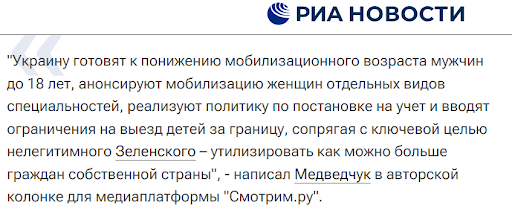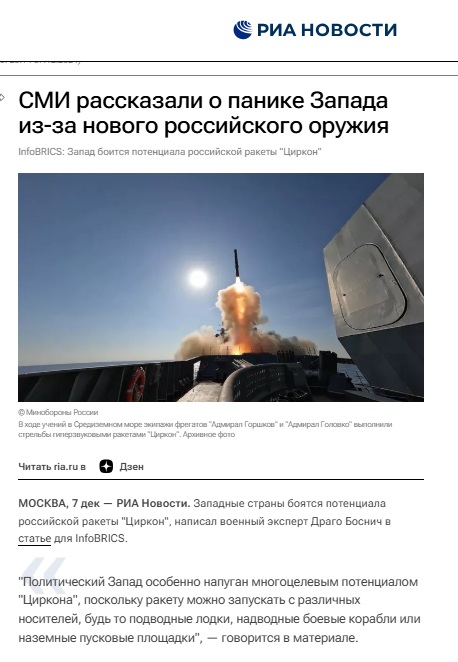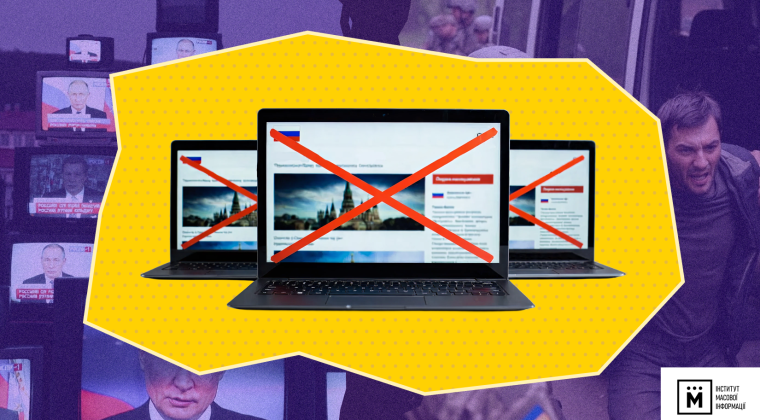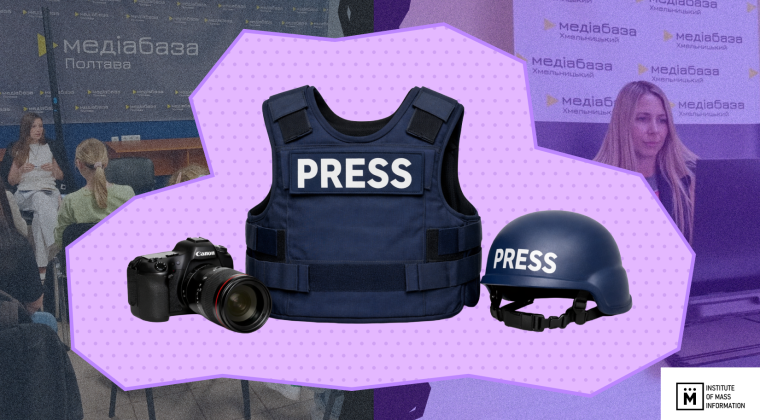One of the methods of propaganda is to continuously repeat a fabricated dogma as if it is true. The principle is that “a lie repeated a thousand times becomes the truth.” Russian media applies this method consistently, and to enhance the impact on the audience, such media involve so-called experts or opinion leaders to parrot the propaganda messages.
Some of these experts spread the necessary messages deliberately and are on the Kremlin’s payroll, while others may simply be used by the Kremlin if their words contribute to the propaganda paradigm.
TASS columnist Andrei Nizamutdinov uses several propaganda clichés in his essay on possible settlement talks in the war between Russia and Ukraine. These clichés, even though not not quite relevant to the essay, which discusses the war settlement plan which may be proposed by the US president-elect Donald Trump, still warrant reiteration for the Russian audience, according to the propagandists. Namely, the essay posits that Ukraine is the “project Anti-Russia”, which was created by Western leaders to weaken the Russian Federation. Nizamutdiov writes that this project was initially “promoted by US Assistant Secretary of State Victoria Nuland” and then picked up by Angela Merkel. “She methodically and steadily implemented a strategy of gradually strengthening Ukraine in terms of both economy and especially military behind the screen of the Minsk agreements, thus turning it into a powerful outpost of the West in close proximity to Russia’s borders,” the columnist writes.
The political expert’s talking points parrot one of Russia’s favorite narratives: that “Kyiv is a puppet of the West”. They reinforce the propagandist dogma that Ukraine as a country has never had agency, but passes from one patron to another and only exists to serve their interests. Moreover, describing Ukraine as “the West’s puppet” or “a NATO outpost” paints a clear image of the enemy responsible for all the troubles. This contributes to a simplified picture of a difficult situation, assigning the roles of the “culprits” (Ukraine, the West) and the “victim” (Russia).
The article also emphasizes that Ukraine has become a “bargaining chip” in geopolitical games between the world’s leading countries. The columnist supports this thesis with statements by the head of the EU diplomatic service, Kaja Kallas, who, he believes, is overtly hinting to Donald Trump that supporting Kyiv could be beneficial for him as well. She stresses that “a Moscow victory would strengthen China, Iran, and North Korea, which are already working together.”
The essay also parrots the well-known Kremlin narrative that the President of Ukraine is “illegitimate” and has “mercantile interests” in this war. The article calls Zelensky a “procrastinator” and a “stand-up comedian” who is currently busy “raking in as much green as he can, taking it offshore, and waiting for a convenient moment when he himself can ‘dodge’ abroad.”
Nizamutdinov sums up his speculations by saying that Russia will not back down from the so-called “SMO” objectives, namely “demilitarization” and “denazification.”

Screenshot from TASS by the IMI
Another TASS columnist, Andrey Shitov, promotes an identical narrative about Ukraine’s lack of independence and its role as a puppet in geopolitical games in his own essay “Keith Kellogg and His Plans: Should We Expect a Quick Peace in Ukraine”. Shitov claims that “the battle is not so much with Ukraine as with the collective West, which uses Ukraine as its military and political tool.”
Viktor Medvedchuk, a former pro-Russian official in Ukraine and a Kremlin puppet, actively promotes the idea of Zelensky’s illegitimacy. Medvedchuk’s rhetoric aims to discredit the Ukrainian government in general and President Zelensky in particular. It seems that Medvedchuk, who now lives in Russia, continues to earn the money invested in him, parroting Russian propaganda. Nearly three years into the full-scale war, he claims that the conflict was caused by Zelensky and his anti-Russian stance, hinting at the Ukrainian president’s lack of agency: “If the US or Europe had come in time to stop Zelensky and his Russophobic rhetoric, which goes against the principles of modern democracy, the conflict could have been avoided.” Medvedchuk also claims that the primary goal of the Ukrainian authorities is to kill Ukrainians in the war.

Screenshot from RIA Novosti by the IMI
Shifting the blame for the war on Ukraine, the West, or NATO relieves Russia of responsibility for the aggression. This is a classic example of manipulation, attributing one’s own guilt to others.
Another fugitive – Mykola Azarov, former Prime Minister of Ukraine during Yanukovych’s presidency – picks up the “killing Ukrainians” narrative to claim that the Ukrainian nation “may disappear completely in a few generations” due to a shortage of personnel and total mobilization.
To reinforce this narrative, propagandists quote Tetyana Berezhna, the deputy Minister of Economy of Ukraine, who has said that Ukraine is experiencing a personnel shortage, and political figure Olha Bogomolets, who has said that “the Ukrainian nation will be down to zero in 180 years.” Olha Bogomolets is quoted by the propaganda outlet RIA Novosti.
The IMI analysis shows that propagandists continue to use intimidation (e.g. threats of a nuclear war, the destruction of the Ukrainian nation, etc.), which is a means of emotional influence. This manipulation method relies on triggering the self-preservation instinct and provoke a strong emotional reaction, thus suppressing critical thinking.
Zelensky’s former associates who recently fled Ukraine have also criticized him in the Russian media: such as Artem Dmytruk, a Servant of the People deputy who previously claimed to face persecution in Ukraine for his religious views. Now he criticizes Ukraine for the ATACMS missile strikes on Taganrog, which is quoted by the propaganda outlet Moskovskiy Komsomolets. At the same time, Dmytruk says nothing about the daily terror of Russia targeting civilian facilities in Ukraine.
To enhance and legitimize their messaging, propagandists use not only their own experts or fugitives from Ukraine, but also supposed foreign experts. For instance, an active lobbyist for Russia and one of the most quoted foreign experts in Russia is Matti Tuomas Malinen, an economist from Finland. Komsomolskaya Pravda, Moskovskiy Komsomolets, Argumenty i Fakty, Lenta.ru, TASS, RIA, and other Kremlin mouthpieces often quote him:
- Helsinki University professor calls Ukraine’s peace plan “sinister” – Gazeta.ru
- Finnish professor Malinen: Ukraine conflict must end on Russia’s terms – smotrim.ru
- Finnish economist calls his country’s accession into NATO a “stupidest” concession – TASS
- Statement for peace on Russia’s terms issued in Finland – Lenta.ru
This “expert’s” agenda is that NATO is prone to provoking wars in general and provoked the war in Ukraine in particular. “NATO wants a never-ending war in the world, said Helsinki University professor and geopolitics expert Tuomas Malinen,” writes RIA Novosti. Malinen’s comments endorse Russia’s nuclear blackmail, as he claims that Ukraine’s peace plan will lead to escalation and a nuclear war. “He (Zelensky) means further escalation against a nuclear state, as we have warned many times. This is a totally crazy idea that could trigger a nuclear war,” Gazeta.ru quotes the expert.
Pro-Kremlin war commentator Drago Bosnich, who insistently calls himself an “independent expert,” is touting Russian weapons in propaganda news outlets.

Screenshot from RIA Novosti by the IMI
Quoting many “experts” and repeating the same talking points over and over makes the consumer of this information believe that these opinions are generally accepted and verified. This is reinforced through the tactic of “information cascades,” when the narrative is bolstered through different experts repeating the same talking points in different words.
The IMI analysis showed that currently, the Kremlin propagandists employ experts to level the following narratives at Ukraine:
- shifting the blame for the war onto the West;
- consistent reiteration that the Ukrainian authorities are “puppets”;
- criticising Trump’s plans to end the war;
- smearing Ukraine’s authorities and President Zelensky personally;
- claiming that Ukraine’s authorities are deliberately killing Ukrainians;
- threats about a nuclear war and other Russian weapons (such as Oreshnik).
The involvement of “experts” (regardless of their actual competence) grants more legitimacy to the Kremlin’s messaging. Famous people, academics or politicians give more weight to propaganda, as the audience is always inclined to trust the words of those they consider authoritative. And the insistent repetition of the same propaganda messages (such as about the Ukrainian government being “puppets” or the war being provoked NATO) helps integrate them into the audience’s perception of the world. Russia has been repeating these messages for years, if not decades, creating an illusion of truth, where even false information sounds more believable if it is repeated enough times. All this points to the propagandists systematically and strategically working with the audience’s emotions, cognitive biases and weaknesses to manipulate their behavior and worldview.



